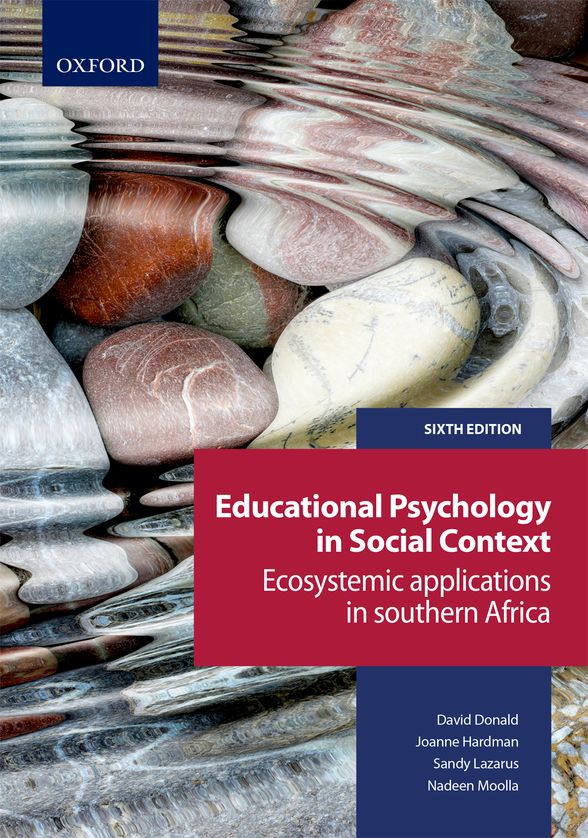Educational Psychology in Social Context: Ecosystemic applications in southern Africa 6e is a tried-and-tested textbook that applies educational psychology – and, specifically, a unifying ecosystemic framework – to aid teachers and other educators to enhance the learning experience of students in a developing society.
The book is relevant to both undergraduate and postgraduate study in either pre-service or in-service teacher education. It can be used for courses in educational psychology in programmes such as BEd, BEd (Hons) and PGCE, and as a handbook for teachers in the field.
Features
- Diagrams, local quotations and glossary items alongside the text to explain specialist and complex terms and concepts.
- Specially designed questions that encourage readers to apply theoretical perspectives and principles of intervention in their own social context.
- Activities that encourage the practical application, and the analysis and consolidation of concepts.
- A learner-centred approach that challenges readers to construct their own understandings.
- A new chapter on the neuroscience of education and schooling, which covers the basics of brain development and neuroplasticity.
- New content on discipline, cyberbullying and an exploration of psychology for African contexts.
- Updated case examples and references throughout the book.
PART I: OVERVIEW
1Aims of the book, and how best to use it
2Quality education for all
PART II: THEORETICAL FRAMEWORK
3An ecosystemic perspective
4Positive psychology
5Understanding human development
6Constructivism and learning
7Neuroscience, the brain and education: A Bridge too far?
PART III: DEVELOPING INCLUSIVE LEARNING ENVIRONMENTS
8Developing inclusive school and classroom environments
PART IV: CONTEXTUAL DISADVANTAGES IN EDUCATION
9Contextual disadvantages: Conceptual framework
10Specific issues of contextual disadvantages
PART V: SOCIAL PROBLEMS IN EDUCATION
11Social problems: Conceptual framework
12Substance abuse and violence
13Sexuality and associated social problems
PART VI: DIABILITIES AND LEARNING DIFFICULTIES
14Disabilities and learning difficulties: Conceptual framework
15Disabilities
16Learning, emotional and behavioural difficulties
